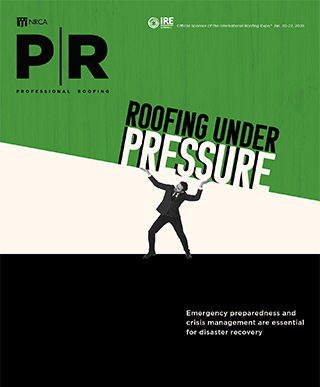It's that time of year again—time to review your financials, profit and loss statements, and corporate records to help save taxes for 2006. Setting aside some time now to meet with your tax planning team and review the most important items will make a big difference when your returns are due next year.
Gary Malawy, CPA, a tax planning authority with Krehbiel and Associates LLC, Mount Vernon, Ill., offers some suggestions.
Advice
According to Malawy, you should deduct business equipment in 2006. Up to $108,000 of new business equipment can be deducted immediately by using Section 179 expensing. The equipment must be placed in service before year's end, not merely purchased.
You also should consider a pass-through business form. Choosing the correct business form allows you to deduct business expenses and start-up losses on your personal tax return. Some choices would be a sole proprietorship, partnership, limited partnership, limited liability company or S corporation.
Paying expenses before year's end can help. If 2006 appears to be a strong revenue year, buy extra supplies, make needed repairs and accelerate purchases by Dec. 31. Also, if possible, postpone receipt of income until after year's end.
If you have underpaid personal taxes this year, increasing withholding on your last few paychecks may avert a tax penalty and fulfill your tax obligation. In addition, check personal liability for the alternative minimum tax. A quick review can save many headaches and perhaps much more in taxes. Small changes to your income can affect the alternative minimum tax on your personal return.
Malawy says offsetting capital gains and losses with a properly coordinated investment plan can help maximize the tax effects of your investment holding. Many mutual funds may subject you to a phantom tax on gains you may not have received.
You also can make charitable contributions. A properly planned gift strategy can help offset one-time taxable gains and reduce your overall taxable income. And consider tracking business mileage. The 2006 mileage deduction rate is 44.5 cents per mile. Tracking business miles—such as routine trips to customer sites—can make a significant difference.
In addition, you may be able to shift income to low-tax-bracket family members. This technique only should be used to pay children for work performed. By paying them a reasonable wage, you may be able to deduct these wages, and they would be reporting that income in a much lower bracket. If you are filing a schedule "C," you also may be able to avoid FICA taxes on wages paid to children younger than 18.
Tax rates on qualified dividends are the same as long-term capital gains in 2006—15 percent—so consider issuing dividends from C corporations or regular corporations before year's end. Paying those dividends now may save taxes in future years when tax rates change.
Malawy also suggests maximizing building depreciation. Nonresidential business real estate generally is depreciable during 39 years. However, business equipment is depreciable during much shorter periods, such as five years or seven years. Consider having an expert conduct a "cost segregation analysis" of your building's component parts to see whether a portion of the building may qualify for the shorter depreciable schedule.
Finally, create a properly planned and funded retirement program. Consider fully funding your 401(k) plan or company profit-sharing before the end of the year. This may help increase cash flow next year and also can help your personal tax planning. In addition, consider increasing the match percentage. Many employers look at this as an expense when it actually can be a benefit paid for by the government. If you receive more than 50 percent of the total contribution, the remaining cost for employees may be offset by tax breaks.
Take action
These are small steps toward total planning. Consult qualified tax and legal accounting advisers to analyze your personal and business tax positions. This should make your life a little less taxing.
Brian Heckert is president of PENFlex Services Inc., a business consulting firm with offices in Nashville, Ill., and Peoria, Ill.
